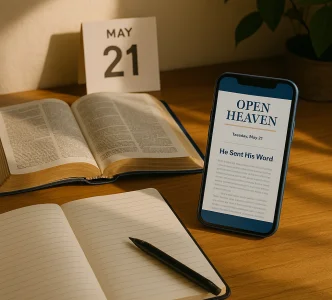999+ people can't be wrong. Can they?
A pause to notice what we're hearing
There's something almost musical about the way bad ideas spread. It's not the harmony kind of music—more like that moment when everyone in a crowded room starts humming the same tune without quite remembering where they heard it first. Right now, across Nigeria's political landscape, we're hearing a particular melody: the song of collaboration at all costs.Listen carefully, and you'll notice its familiar refrain echoing from opposing camps. Those desperate to unseat the current president sing it with passionate conviction, and those flocking to join his party hum it with equal fervour. The words change, but the tune remains hauntingly familiar—because we've heard this song before.
The Alchemy of Desperation
What's curious about hardship is that it doesn't just empty stomachs and bank accounts. It empties the spaces where patience used to live, where careful thinking once resided. Into these vacant lots, ideas rush in like opportunistic weeds—not because they're true, but because they're available.Rory Sutherland reminds us that the opposite of a good idea can also be a good idea. But what happens when desperation stops us from asking whether an idea is good? What happens when we're so thirsty that we'll drink from any stream, even one poisoned upstream?
In Nigeria today, we're watching this ancient human drama unfold in real time. Political movements that would normally repel each other suddenly discover shared purpose. Former enemies become bedfellows. Old principles get quietly retired to make room for new conveniences.
The Art of Rebranding Poison
There's something almost artistic about how poison gets rebranded as nectar. It requires genuine creativity—the kind that takes a bitter truth and wraps it in the sweet promise of salvation. The packaging is often beautiful: unity, progress, change, restoration. The marketing is sophisticated: testimonials from converts, carefully choreographed rallies, social media campaigns that feel organic but spread with suspicious precision.But here's what the packaging rarely mentions: every bottle of political nectar in Nigeria's recent history has contained remarkably similar ingredients: the same promises, the same alliances, and the same assurances that this time will be different.
Cults of Convenience
We're witnessing something that happens in all human societies, but perhaps with particular intensity in ours: the formation of cults of convenience. Not the robes-and-rituals kind, but the quieter type—groups of people who surrender their individual judgement to a collective promise that's too attractive to examine closely.These cults don't require you to move to a compound. They just ask you to move your thinking to a simpler place: where complex problems have simple solutions, where the blame for today's troubles can be placed entirely on yesterday's leaders, where the promise of tomorrow's salvation requires only today's loyalty.
The remarkable thing about these cults is how they form across all kinds of boundaries. Religious divisions suddenly seem less important. Geographic loyalties shift overnight. Ethnic differences get temporarily set aside. Economic interests align in ways that would have been unthinkable months earlier.
It's almost as if desperation has its own magnetic field, pulling together elements that normally repel each other.
The Sound of Othering
But notice something else in the symphony of collaboration: the counterpoint of division. For every song of unity within the group, there's a harsher melody about those outside it. The more desperately people cling together, the more urgently they need someone to define themselves against.Religion becomes a weapon. Geography becomes a fortress. Ethnicity becomes uniform. Race becomes a banner. Not because these differences are inherently divisive, but because desperate coalitions need enemies to justify their existence.
Listen to the rhetoric carefully. Notice how it shifts from describing policies to describing people, from critiquing ideas to questioning motives, from addressing problems to identifying scapegoats.
The Ancient Pattern
Here's what's both fascinating and heartbreaking: this isn't new. Nigeria has been here multiple times. The players change, the parties shift, the slogans get updated, but the underlying pattern remains remarkably consistent.Collaboration born of desperation. Promises that feel revolutionary but sound familiar. Enemies are identified with suspicious convenience. Solutions that require surrendering the very critical thinking that might actually solve problems.
And then, inevitably, the same ending: the discovery that changing the cast doesn't change the play.
Who Benefits?
So here's the question that seems almost rude to ask in moments of passionate coalition-building: Who benefits?Not from the stated goals—unity, progress, change—but from the process itself. Who gains when people stop asking difficult questions? Who profits when critical thinking is temporarily suspended? Who thrives when desperation makes people grateful for any promise, no matter how familiar it sounds?
The question isn't meant to be cynical. It's meant to be clarifying. Because somewhere in the answer lies the key to understanding why the same patterns repeat with such reliable frequency.
An Invitation to Notice
This isn't a call to abandon hope or reject all political collaboration. It's simply an invitation to notice—really notice—what's happening around us.Notice the emotional tenor of the appeals being made. Notice which arguments rely on fear and which on evidence. Notice who benefits when people stop asking questions. Notice the difference between collaboration born of shared values and collaboration born of shared desperation.
Notice the difference between unity that includes and unity that excludes. Between solutions that address root causes and solutions that simply rearrange the furniture.
Most importantly, notice your own inner soundtrack. What tune have you been humming lately? Where did you learn it? And what happens when you pause the music long enough to ask whether it's actually taking you where you want to go?
The Space Between Songs
Perhaps the most radical thing we can do right now is create a little space between ourselves and the melodies that surround us. Not to reject them entirely, but to listen more carefully, ask better questions, and resist the magnetic pull of desperate certainty.Perhaps real change happens not in the loud moments of collective singing but in the quiet spaces where individuals remember how to think for themselves, where people choose collaboration based on shared wisdom rather than shared wounds, and where hope is built on something sturdier than the promise that this time will be different.
The songs of collaboration at all costs will continue playing. They always do. But we don't have to dance to every tune we hear.
Nigerian Bulletin - Explore. Experience. Exchange.



